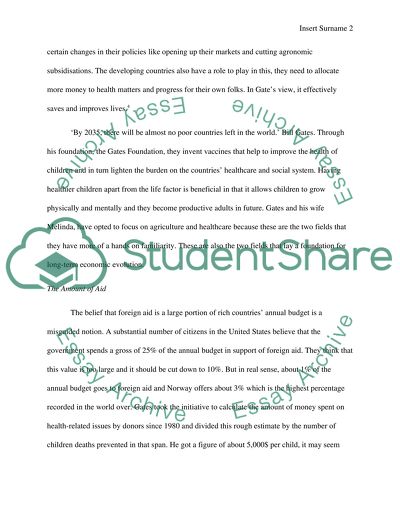Cite this document
(“Is Bill Gates Correct in the view that foreign aid truly matters Essay”, n.d.)
Is Bill Gates Correct in the view that foreign aid truly matters Essay. Retrieved from https://studentshare.org/social-science/1639027-is-bill-gates-correct-in-the-view-that-foreign-aid-truly-matters
Is Bill Gates Correct in the view that foreign aid truly matters Essay. Retrieved from https://studentshare.org/social-science/1639027-is-bill-gates-correct-in-the-view-that-foreign-aid-truly-matters
(Is Bill Gates Correct in the View That Foreign Aid Truly Matters Essay)
Is Bill Gates Correct in the View That Foreign Aid Truly Matters Essay. https://studentshare.org/social-science/1639027-is-bill-gates-correct-in-the-view-that-foreign-aid-truly-matters.
Is Bill Gates Correct in the View That Foreign Aid Truly Matters Essay. https://studentshare.org/social-science/1639027-is-bill-gates-correct-in-the-view-that-foreign-aid-truly-matters.
“Is Bill Gates Correct in the View That Foreign Aid Truly Matters Essay”, n.d. https://studentshare.org/social-science/1639027-is-bill-gates-correct-in-the-view-that-foreign-aid-truly-matters.


